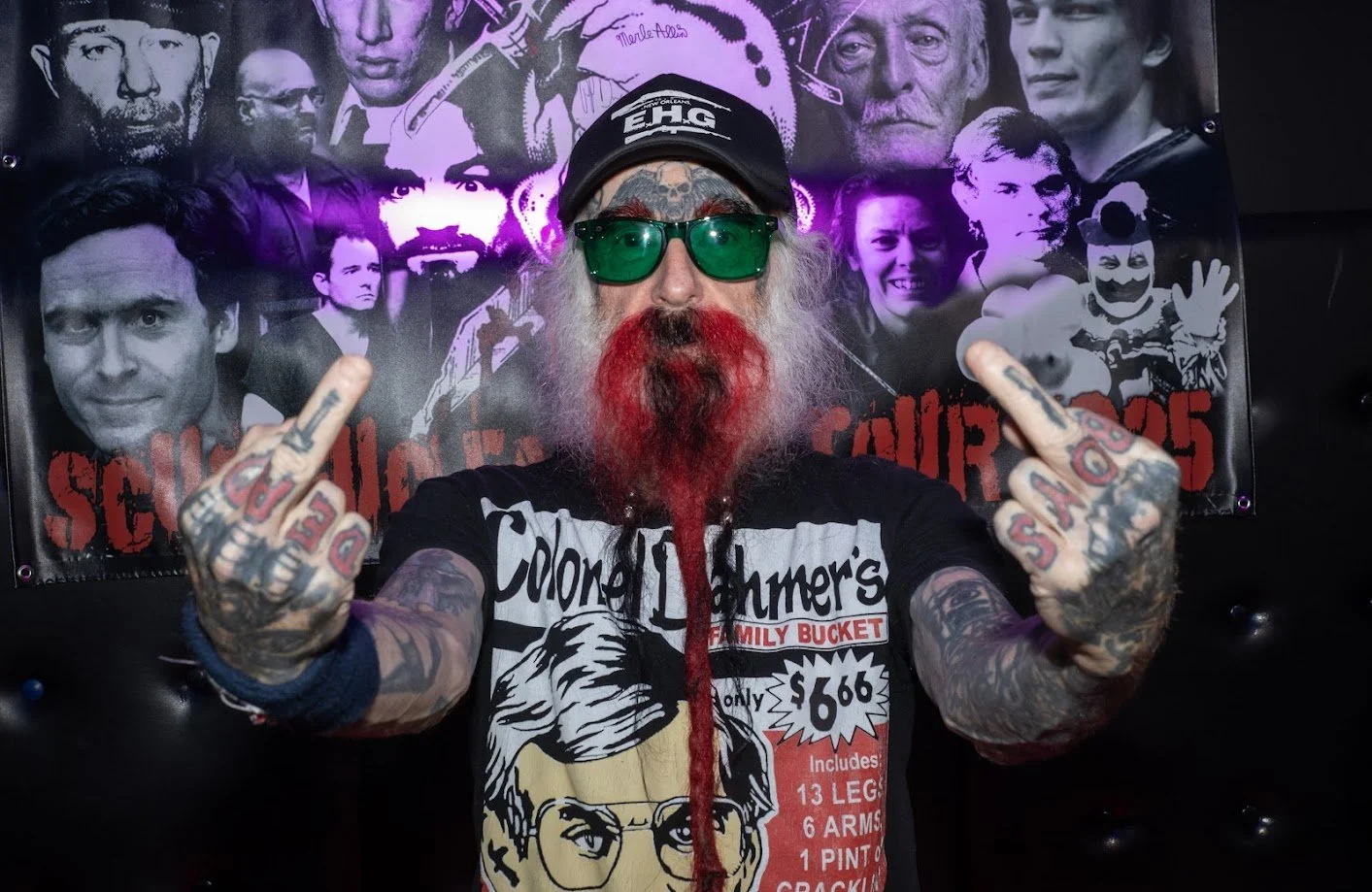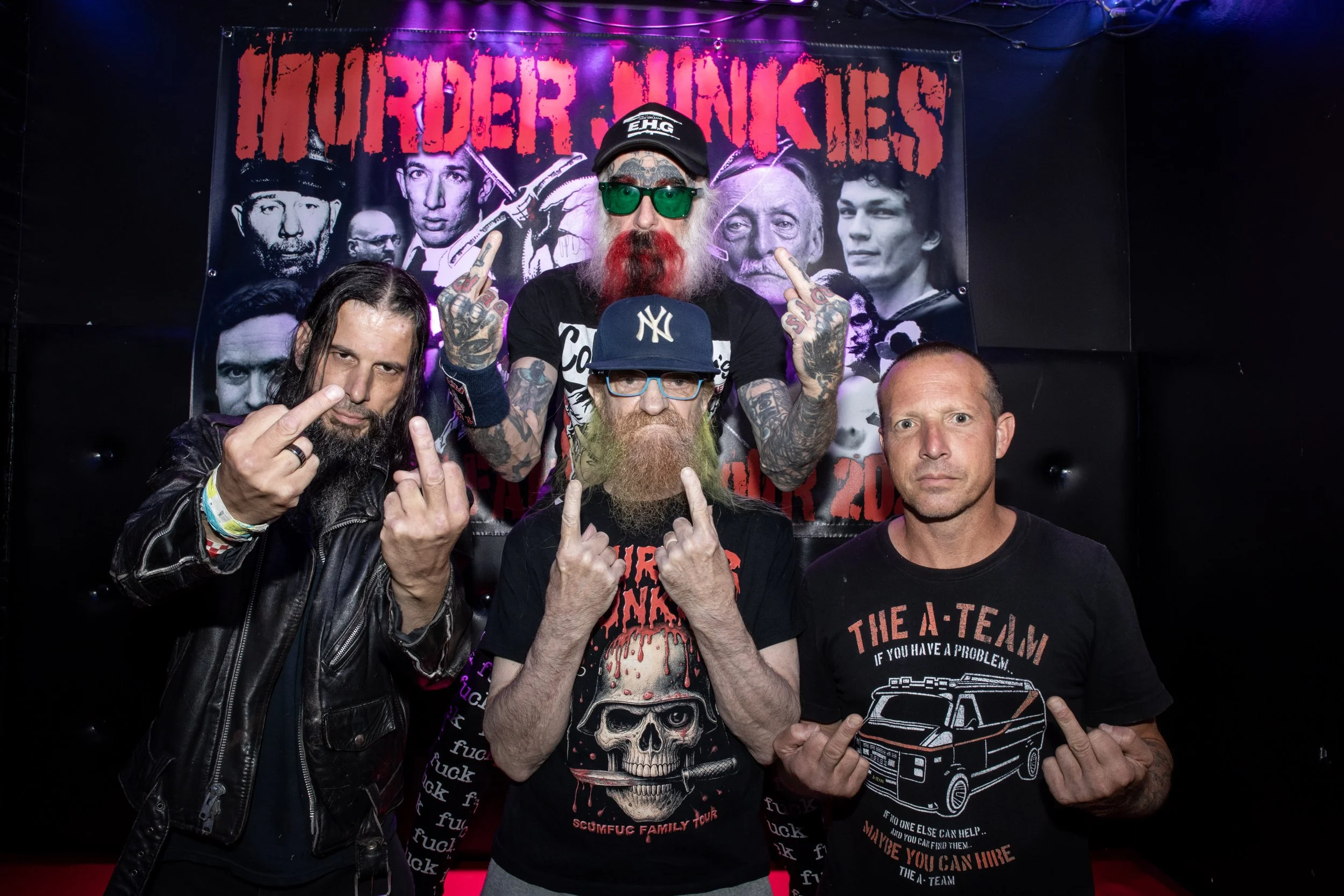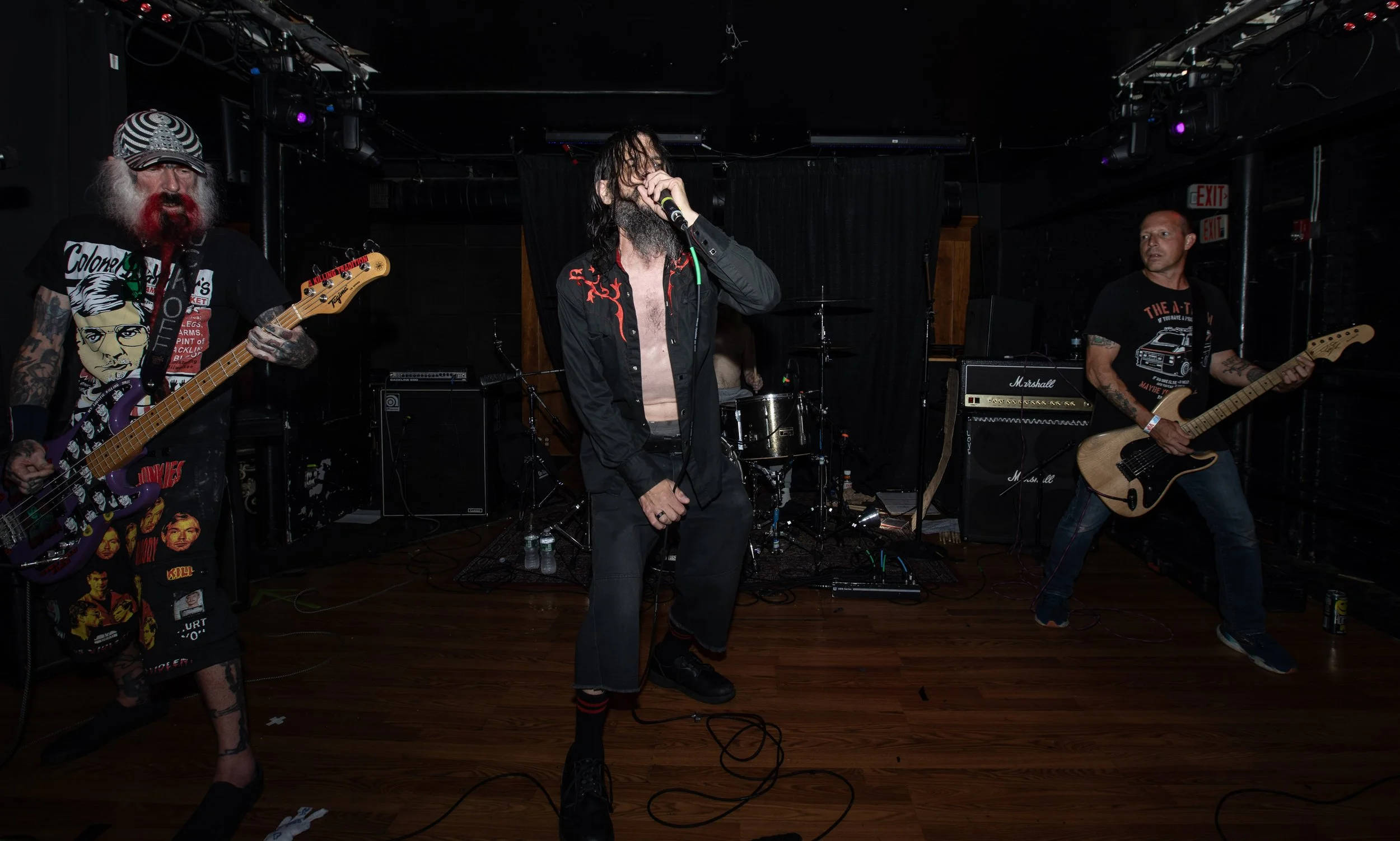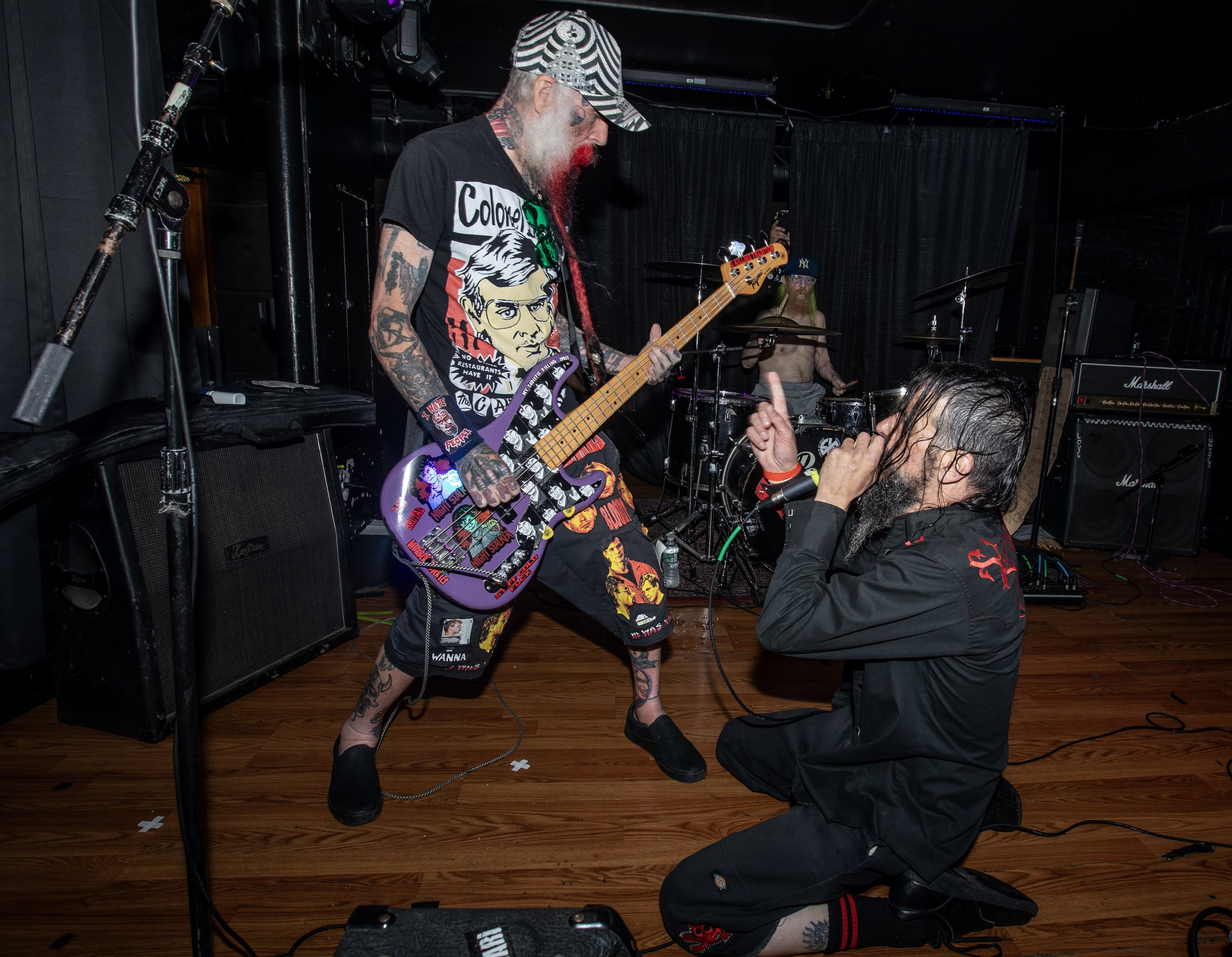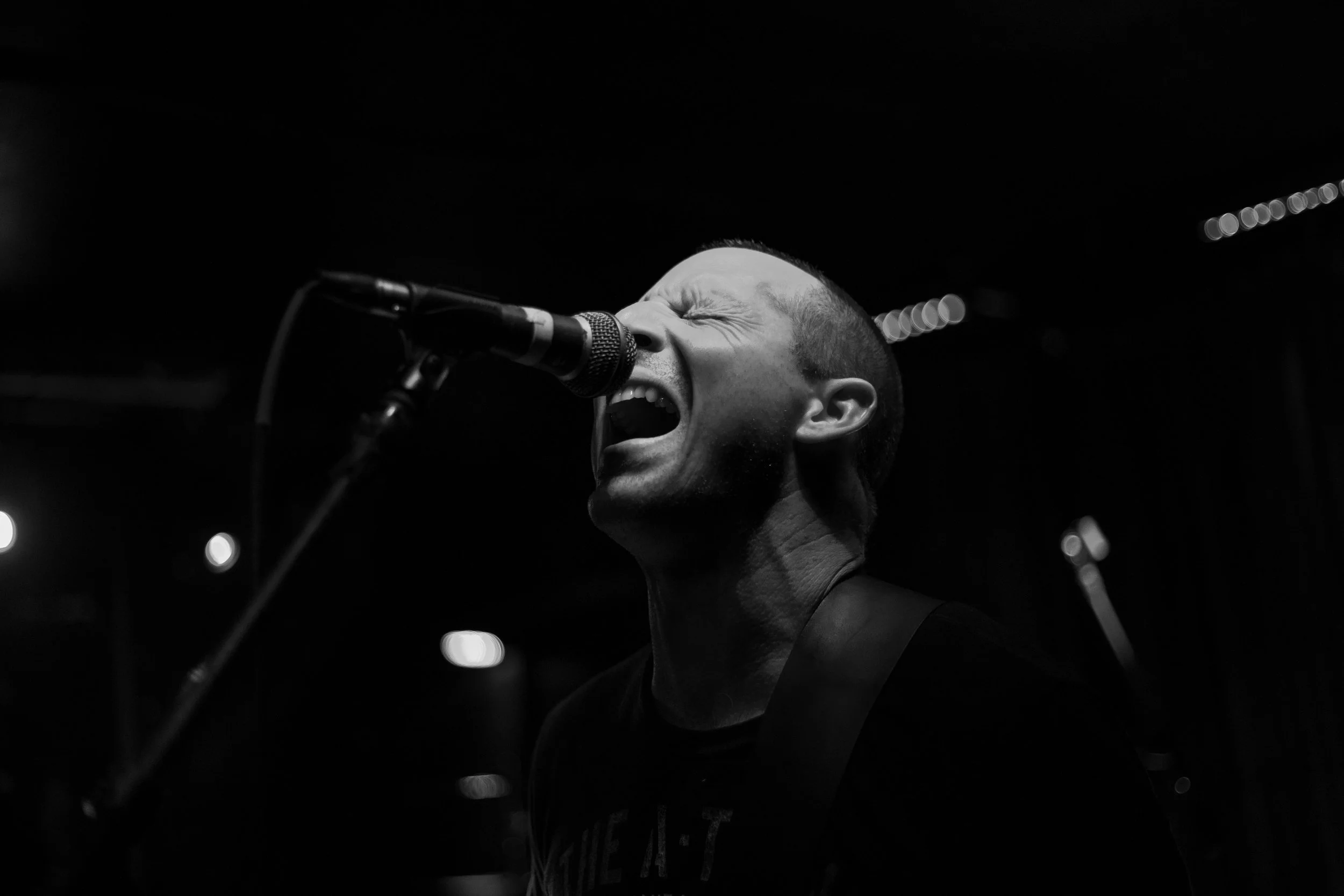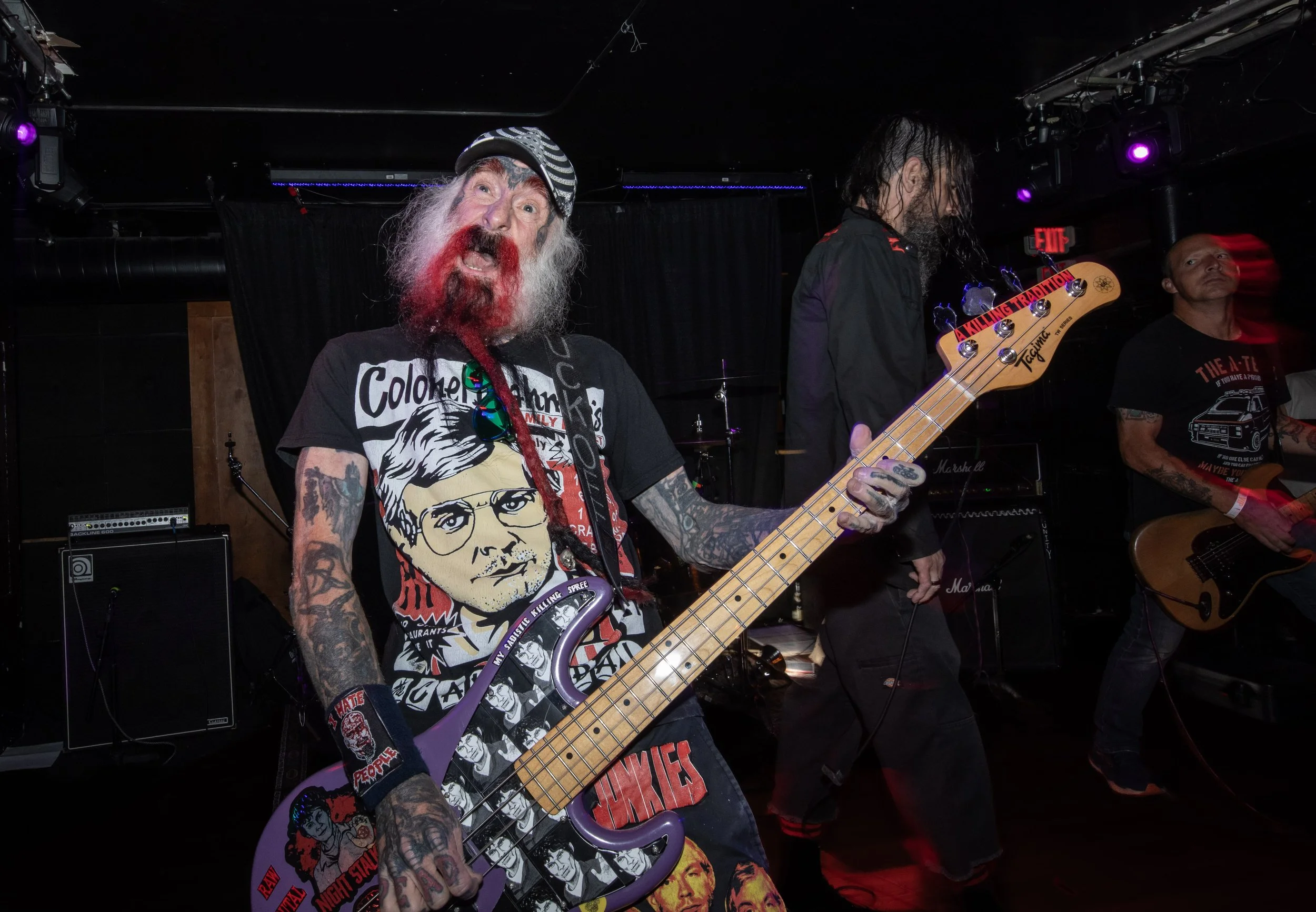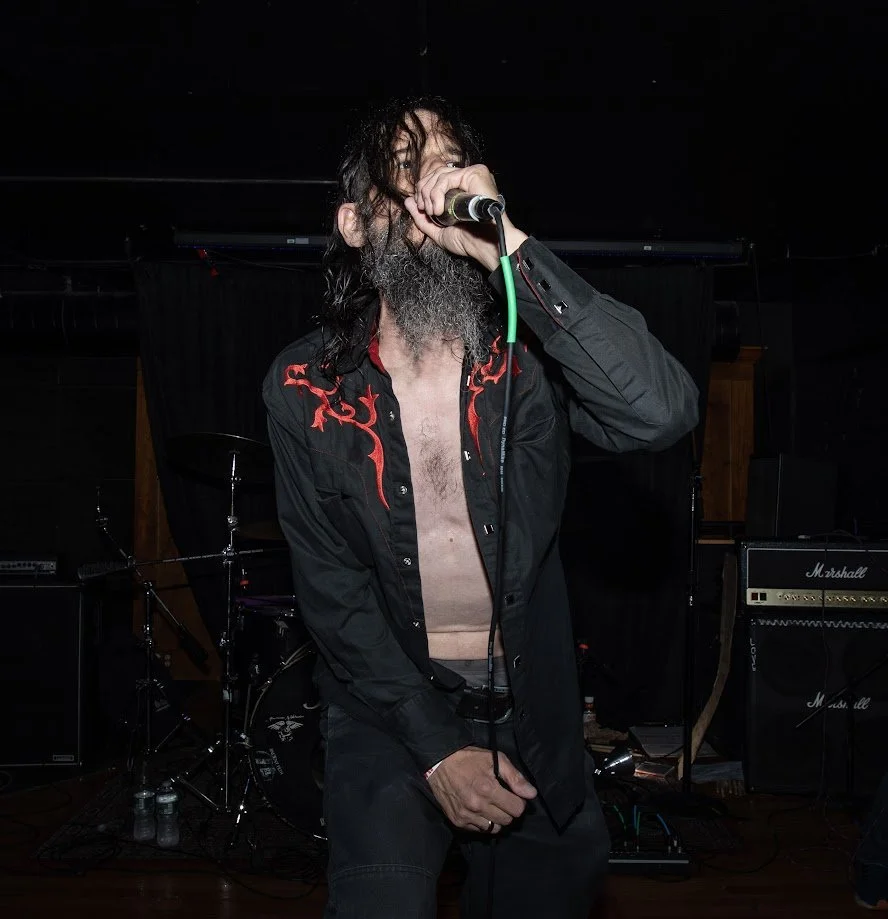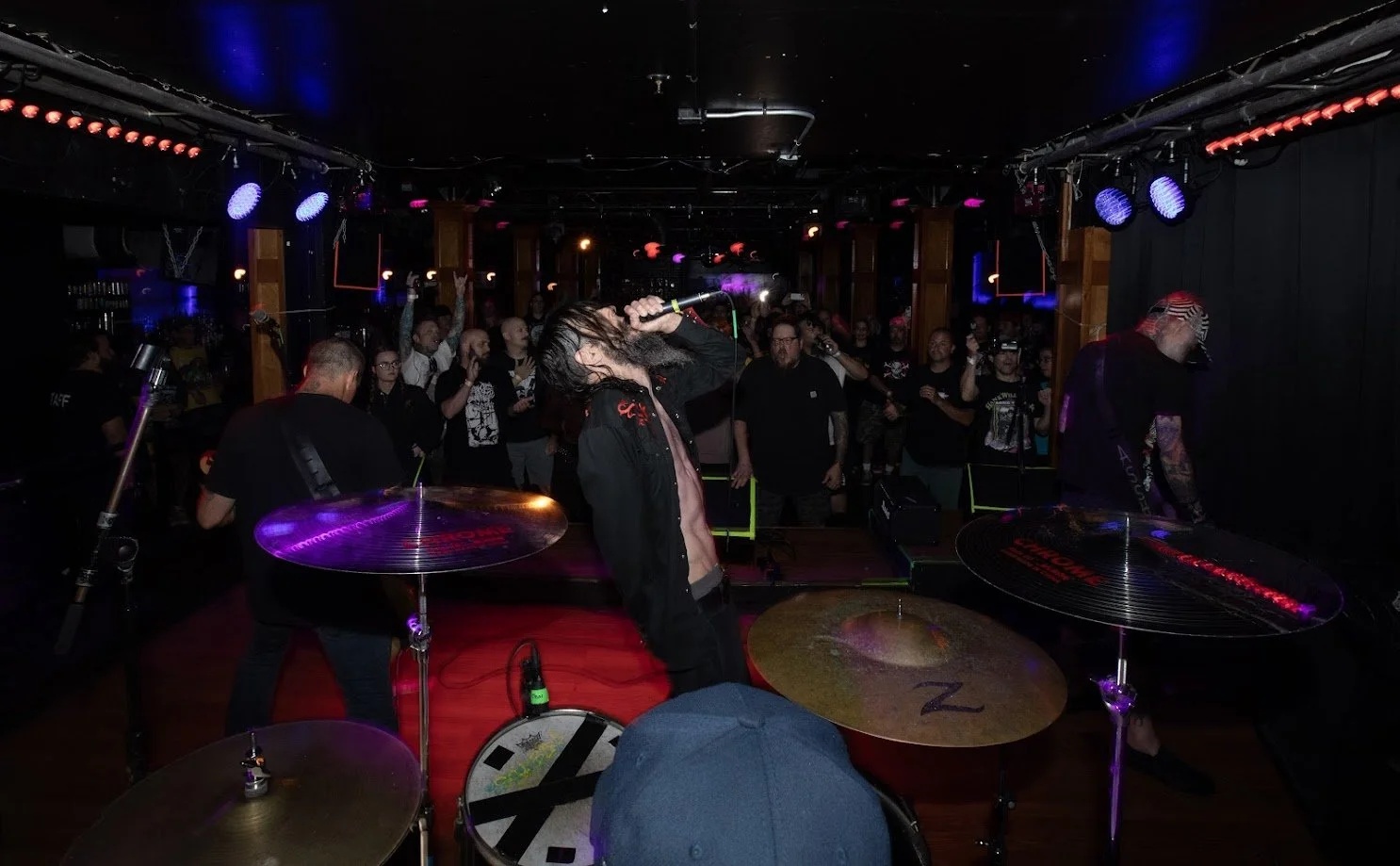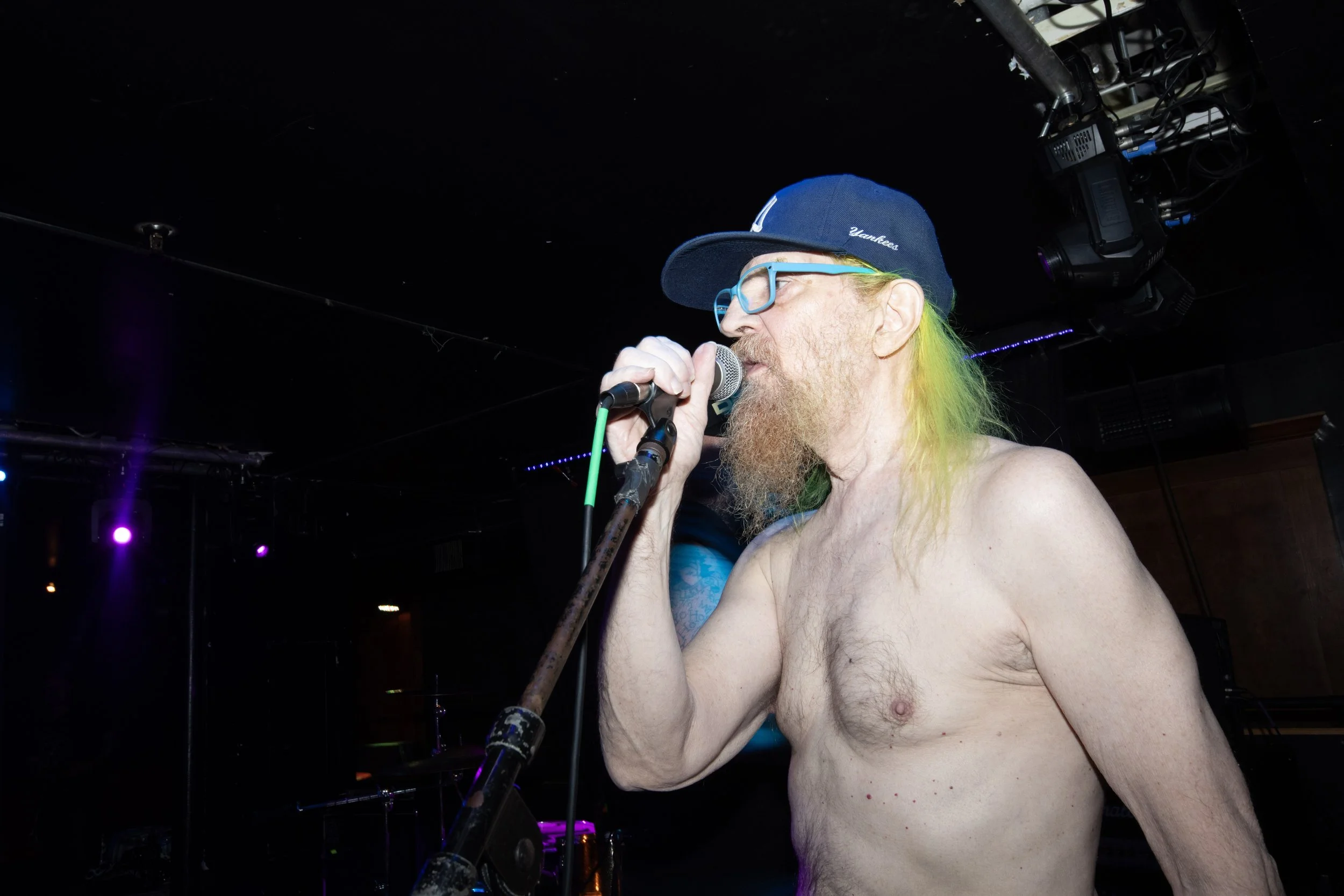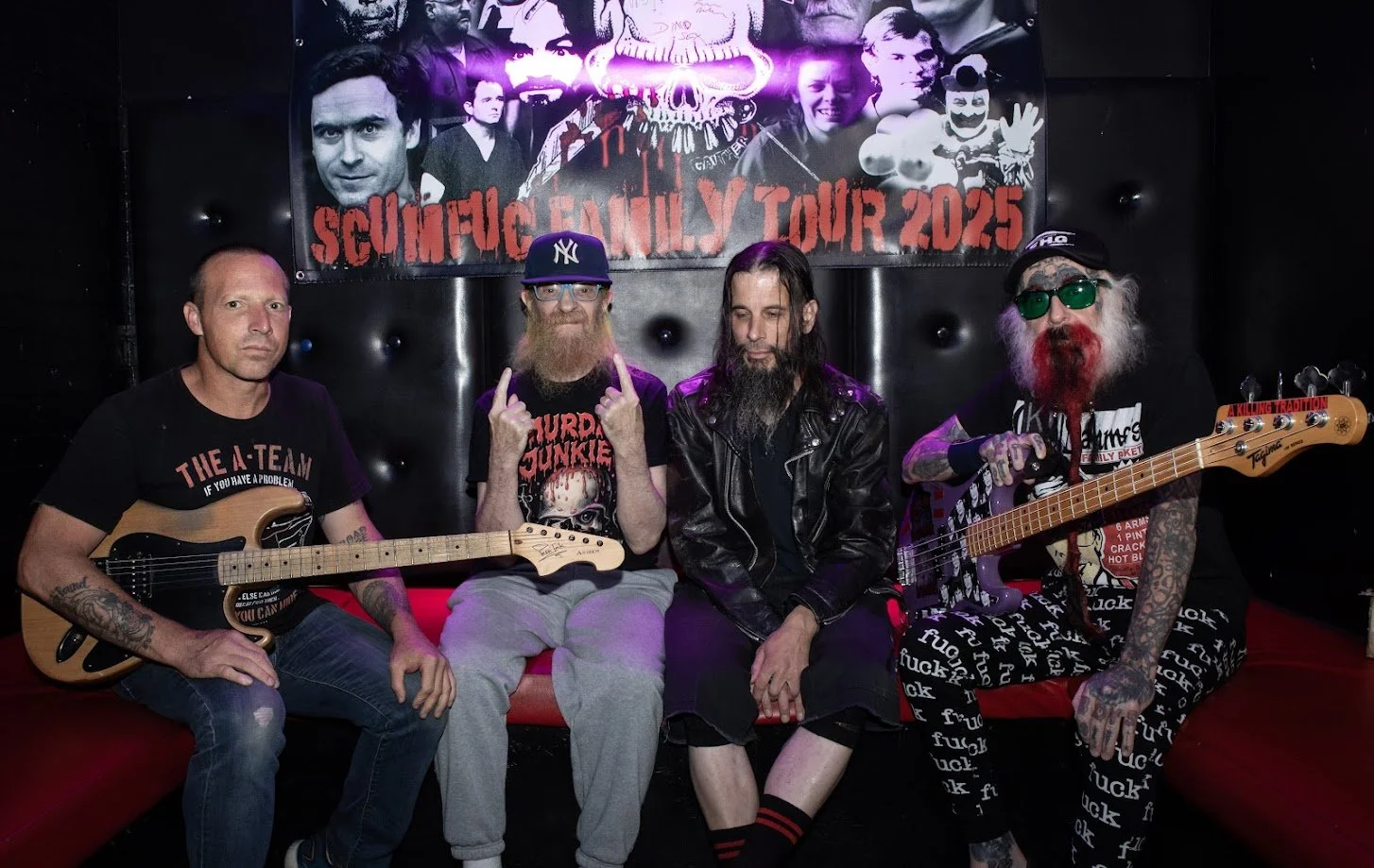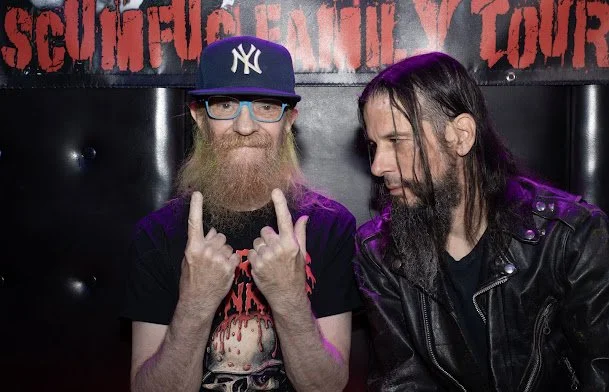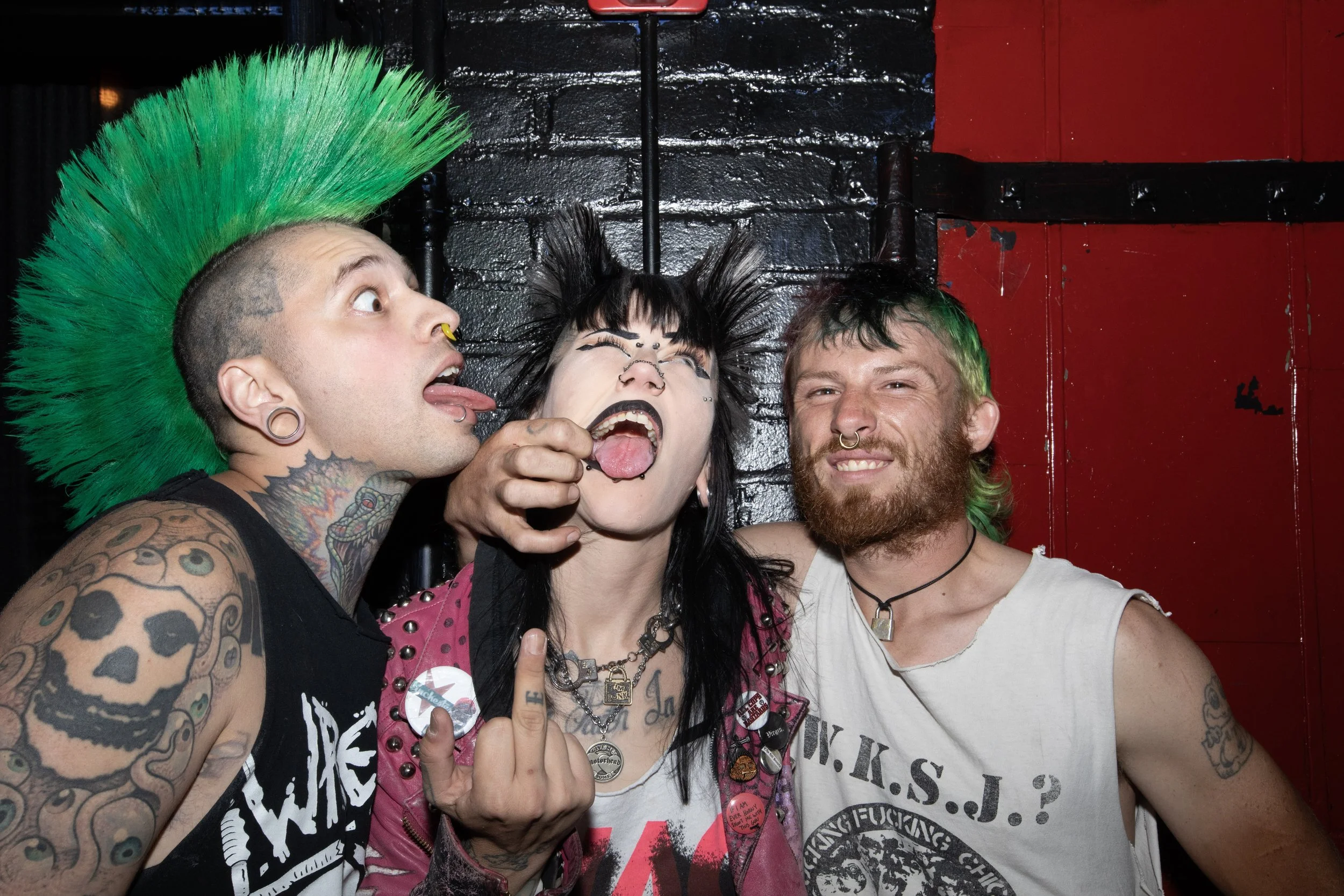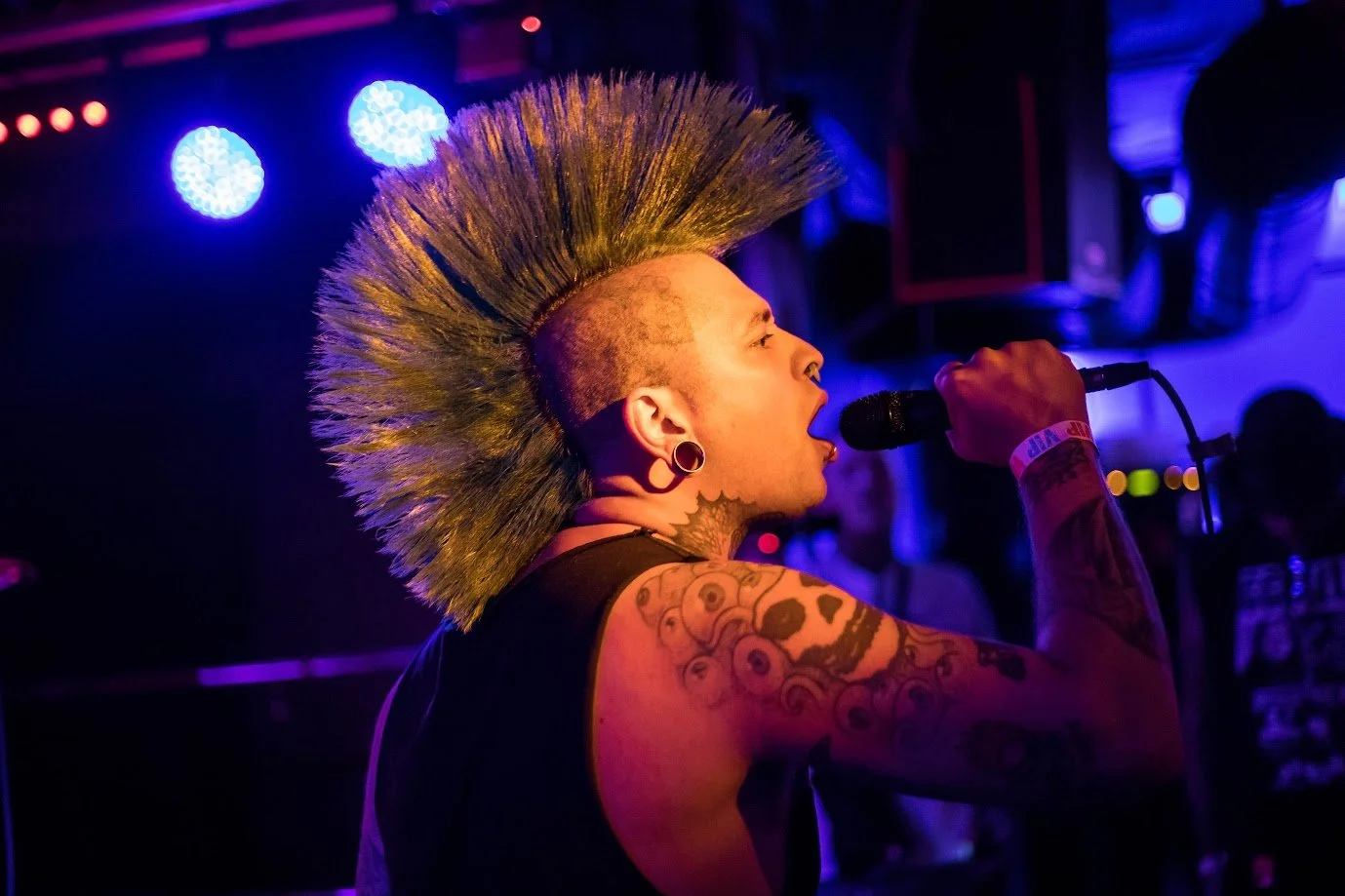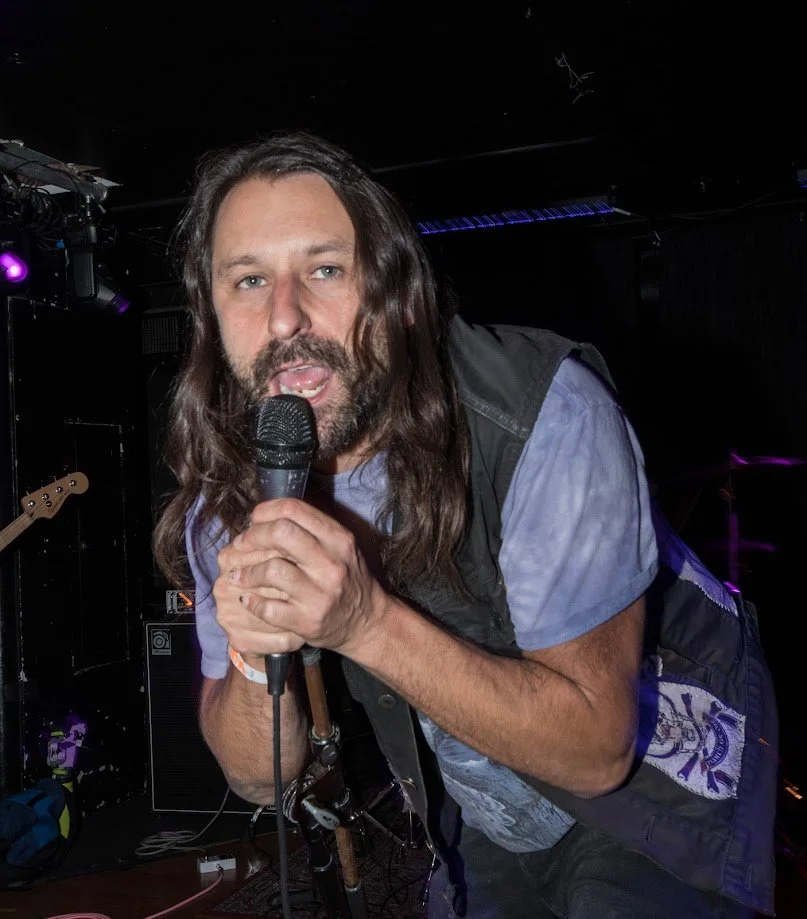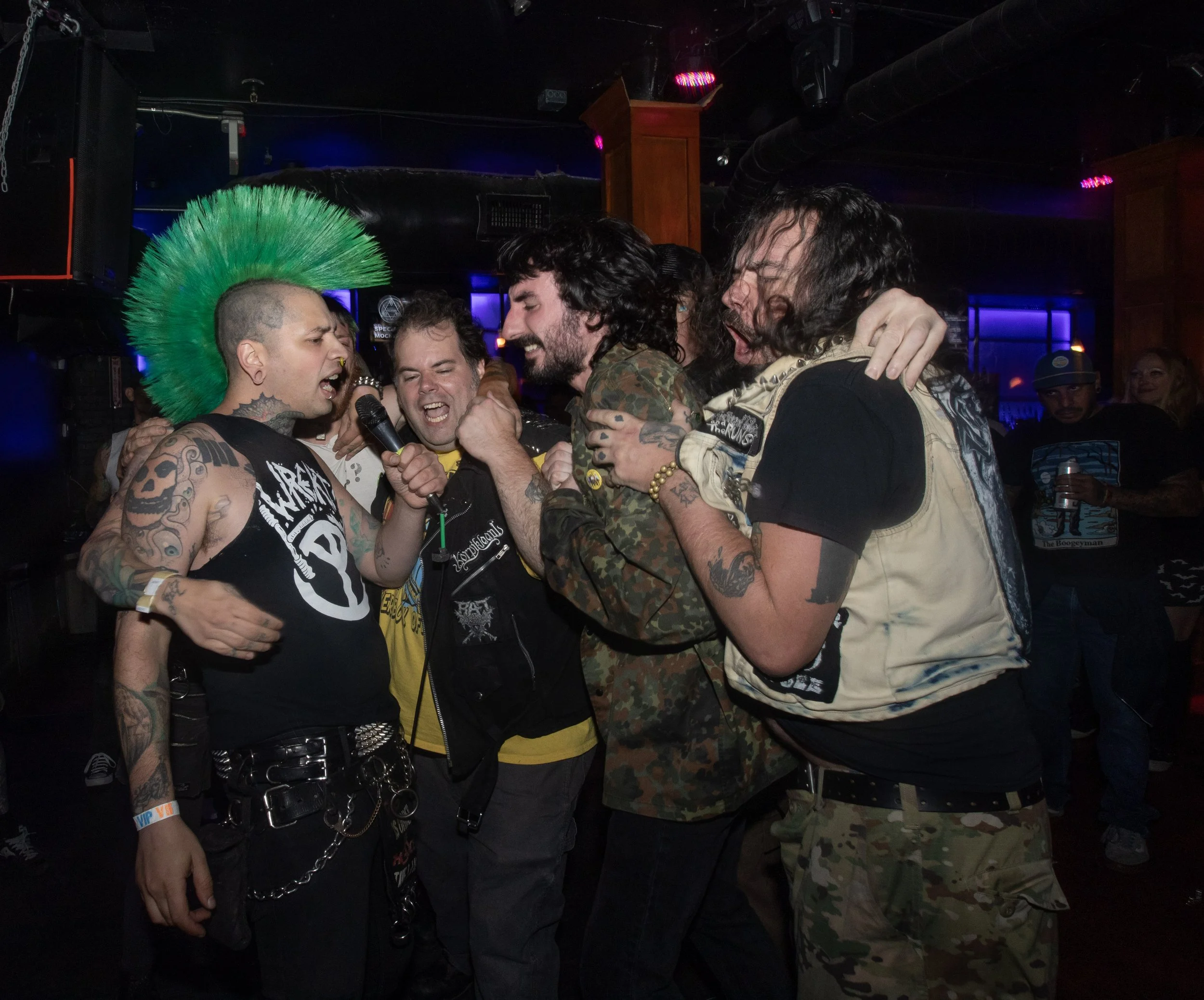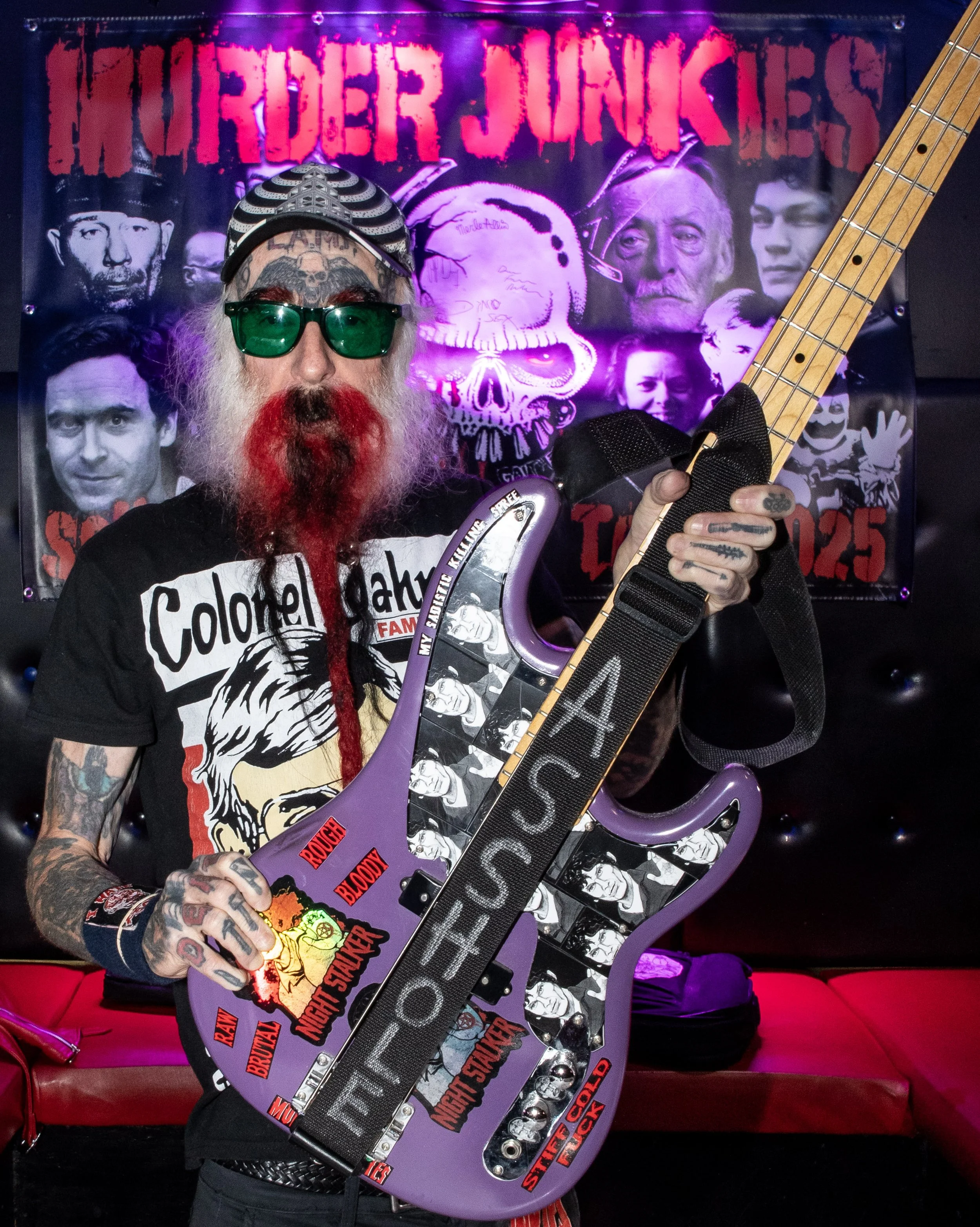Beyond the Shadow of GG Allin: The Murder Junkies on Tour 2025
Story and Photography JD Cohen
If you mention the band The Murder Junkies, the first thing most people think of is GG Allin, the notorious rock and roll antihero who fronted the band from 1990 until his death in 1993. GG Allin and his backing band, The Murder Junkies, occupy one of the most notorious reputations in the history of rock and roll — with a mix of shock, infamy, and underground cult legend. Their legacy is less about conventional musicianship and more about transgression, confrontation, and chaos. GG is remembered as one of the most extreme figures in punk and rock history. His concerts became infamous for self-mutilation, defecation on stage, and attacking audience members. GG often performed naked and there are claims from people who attended his shows, and some references in fan lore, that he once simulated sex with a dead cat on stage.
For many, GG’s performances represented chaos more than music. His violent confrontations with audiences blurred the line between art and assault. Scholars and cultural critics sometimes place GG Allin alongside performance artists who use their bodies as sites of protest (e.g., Chris Burden, Marina Abramović), though GG’s motivations were more nihilistic than philosophical.
The Murder Junkies were GG’s final and longest-running backing band. The lineup included his brother Merle (bass) and drummer Dino Sex (known for drumming nude). The Murder Junkies, by association, have been remembered less for their artistry and more for enabling GG’s radical vision. Musically, the band played raw, aggressive punk rock in the vein of The Ramones and The Stooges, but their sound was overshadowed by GG’s theatrics.
After GG’s death in 1993, The Murder Junkies continued performing, keeping his legacy alive and cultivating a cult following among punk fans. 20 years after his death, GG remains a larger than life figure, casting an enormous shadow over the current Murder Junkies band. But there is more to the story of Merle Allin and The Murder Junkies than the legacy of GG Allin, and this is too often overlooked and under-appreciated.
After 6 years of cancelled tours, personal tragedy and inactivity, on May 29th Merle Allin and his band The Murder Junkies announced the Scumfuc Family Tour 2025, performing 25 shows in 26 days from August 1st until August 31st. The tour covered 13 states with multiple shows in New York, Pennsylvania, Michigan, Illinois, Virginia, Kentucky, Ohio and Indiana. Final tour dates were posted on Merle's Facebook page with the final show being performed at Peabody’s in Plattsburgh, New York. According to the band and by all accounts the tour was a tremendous success, nearly selling out with receptive crowds at every show.
I met up with Merle and the band before one of their final shows of the tour at Alchemy in Rhode Island on August 28th. The band would be headlining that evening with three local opening bands, Troll Milk (Salem, MA), SCÜMBARI (Boston, MA) and Mooseknuckle (Boston, MA).
When I arrived at the venue the band was unloading and Merle was already inside the venue putting the finishing touches on the merch table and hanging the tour banner. I was greeted by tour manager, musician, sometimes van mechanic and all around jack of all trades, Brandon Michael Fergus. Fergus introduced me to Merle and the rest of the band. Merle and I agreed to conduct our interview at a later date and we proceeded to take some band photos before the venue opened and the crowd started to arrive.
At the age of 70, Merle is a charismatic figure who is in tremendous physical shape. Living in Murrieta, California, about 80 miles south of LA, Merle bikes 20 miles a day and works out in the gym. Although he has strong opinions and he's firmly in control of his music and his career, Merle’s quiet calm, friendly and thoughtful demeanor are not what you would expect from a man that is associated with so much violence, controversy and transgression. Merle works the merchandise table like a seasoned sales person and he has managed to live a comfortable lifestyle doing what he loves by making smart financial decisions and working tirelessly to profit from his art and his interests.
Merle admits he doesn’t have a lot of attachments and although he’s an avid collector, everything is for sale, EVERYTHING. Merle made arrangements to sell the bass he played during the tour to a fan who would be at the final show. As soon as he was done with the instrument, which he had personally decorated, it was sold.
Merle never left the Merch table from the time I arrived at Alchemy until the moment the band took the stage, some time after 9:00pm. As soon as the band started playing, I realized this was not going to be the sloppy punk onslaught I expected. Lead singer PP Duvay, who joined the band in 2007, prowled the stage, barking out lyrics with his own fierce and understated charisma. The band is tight, direct. The band can swing and songs like “Once a Whore”, “One Rail Away”, “Who Gives A Fuck” and “Kill The Police” are catchy and memorable with great guitar riffs. Merle says they are always the slowest band on stage but the music is heavy and powerful with intensity and structure.
Duane “Franny” Rollick, who has also been with the band for more than 20 years provides heavy guitar riffs that give the band its kick. Merle and Dino provide solid backing that rumbles and moves each song forward.
The oldest member of the band, Donald "Dino Sex" Sachs, is also the band's most enigmatic figure although he is in declining health and advancing in age. Dino seemed frail and unsteady before the show but came alive behind the drum kit, pounding out the beat in good time through the band's 14 song, 50 minute set list.
The crowd at Alchemy was a surprising mix of older and younger fans, which has been the case throughout the tour. Although there was some aggressive moshing for the opening bands, fans were surprisingly attentive and well behaved during the Murder Junkies set and it was clear they were interested in hearing the music in addition to responding to it.
The most transgressive and unusual moment of the evening came after the Murder Junkies finished their set and left the stage. As the house lights came on, Dino came out from behind his drum kit to the front of the stage. Two female volunteers from the audience offered to assist inserting two drumsticks up Dino’s rectum. They lubed up the drumsticks as Dino stripped bare and bent over while the crowd roared with excitement.
The act caught me off guard, as I was side stage talking with members of one of the opening acts when Dino came to the front of the stage for his solo performance. It was surely an arresting moment to witness live but it was more a moment for Dino (and the crowd) than an integral part of the band’s performance.
The only real similarity between the current incarnation of The Murder Junkies and that of the GG Allin era band is the lyrical content of the songs. Violence and Misogyny are dominant themes. Merle is well known for his interest and correspondence with serial killers, horror movies and violent imagery. When asked about it directly, Merle had little insight into the violent imagery and violence culture that inspires him: “If there's a whole serial killer thing, I mean, …, that's just part of the shit that I'm into, and you know, I mean, we write songs about serial killers, we write songs about rape and torture and murder and death. … we're not writing fucking love songs. We're writing shit about the reality of life…we're living in a violent fucking world”
Horror and true crime narratives have a long history and continue to grow in popularity within American culture. For some audiences, horror provides catharsis; for others, empowerment. How we react to and process violent content varies, but for fans of The Murder Junkies, the violence functions as both cathartic release and a form of empowerment—an energy that was on full display at Alchemy and that resonates deeply with those drawn to their music and live shows. Yet the cultural fascination with violence, particularly violence against women, is troubling and cannot be overlooked. The reality is stark: the vast majority of serial killer victims are women. Merle would likely dismiss concerns about the glorification of violence as “woke” or irrelevant, but confronting these issues forces us to grapple with uncomfortable truths about American culture: its appetite for violence, a fascination with deviants, a streak of misogyny, and an overwhelmingly deep and generational trauma.
That tension is exactly what makes The Murder Junkies so hard to pin down and relegated to cult status and not fit for widespread mass consumption. Like Merel himself, The Murder Junkies are a paradox: soaked in a culture of violence yet charming and tightly disciplined, shocking yet magnetic, infamous yet original. More than three decades after GG Allin’s death, the band has evolved, they have successfully carved out their own identity and remain captivating, talented, and—maybe most surprisingly, still very much relevant.
Horror and true crime narratives have a long history and continue to grow in popularity within American culture. For some audiences, horror provides catharsis; for others, empowerment. How we react to and process violent content varies, but for fans of The Murder Junkies, the violence functions as both cathartic release and a form of empowerment—an energy that was on full display at Alchemy and that resonates deeply with those drawn to their music and live shows. Yet the cultural fascination with violence, particularly violence against women, is troubling and cannot be overlooked. The reality is stark: the vast majority of serial killer victims are women. Merle would likely dismiss concerns about the glorification of violence as “woke” or irrelevant, but confronting these issues forces us to grapple with uncomfortable truths about American culture: its appetite for voilence, facination with deviance, its streak of misogyny, and an overwhelmingly deep and generational trauma.
That tension is exactly what makes The Murder Junkies so hard to pin down and relegated to cult status and not fit for widespread mass consumption. Like Merel himself, The Murder Junkies are a paradox: soaked in a culture of violence yet charming and tightly disciplined, shocking yet magnetic, infamous yet original. More than three decades after GG Allin’s death, the band has evolved, they have sucessfully carved out their own identity and remain captivating, talented, and—maybe most surprisingly, still very much relevent.
MURDER JUNKIES - FINAL TOUR SCHEDULE
SCUMFUC FAMILY TOUR AUGUST 2025
WEDS 6TH CAFE NINE, NEW HAVEN, CT.
THUR 7TH MEAT LOCKER, MONTCLAIR, N.J.
FRI 8TH LAFAYETTE BAR, EASTON, PA.
SAT 9TH GLASS CITY COMPOUND, GRAPEVILLE, PA
SUN 10TH NO CLASS, CLEVELAND, OH.
MON 11TH 123 PLEASANT ST. MORGANTOWN, W.V.
TUES 12TH STANS ROOM @ PIERES ENT. CENTER, FT. WAYNE, IN.
WEDS 13TH COSMO JOE'S, DAYTON, OHIO
THUR 14TH THE REX THEATRE, MORENCI, MI.
FRI 15TH LAGER HOUSE, DETROIT, MI.
SAT 16TH REGGIES MUSIC JOINT, CHICAGO, IL.
SUN 17TH WILLIS STEELE, GALESBURG, IL.
MON 18TH 21 ROCK, ARNOLD, MO.
TUES 19TH ROXGLASS MUSIC VENUE, CAVE CITY, KY
WEDS 20TH BLACK CIRCLE, INDY, IN.
THURS 21ST SOUTHGATE HOUSE, NEWPORT, KY.
FRI 22 ND COFFEE POT ROADHOUSE, ROANOKE, VA
SAT 23RD ANOTHER ROUND, RICHMOND, VA.
SUN 24TH CAFE 611, FREDERICK, MD.
TUES 26TH BERMUDA HORROR LOUNGE, BROCKWAY, PA
WEDS 27TH LUCKY 13 SALOON, BROOKLYN, N.Y.
THUR 28TH ALCHEMY, PROVIDENCE, R.I.
FRI 29TH AMY'S PLACE, BUFFALO, N.Y.
SAT 30TH BUGJAR, ROCHESTER, N.Y.
SUN 31ST PEABODY'S, PLATTSBURGH, N.Y.
